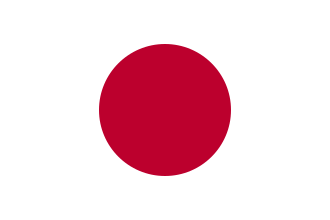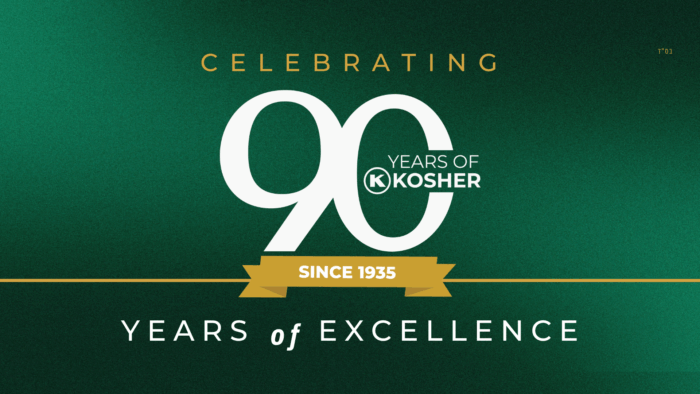
Food and Beverage M&A, or Mergers and Acquisitions – Contributed by OK Kosher’s Growth Department
The food and beverage industry’s landscape is constantly evolving. Mergers and acquisitions, for example, continually reshape the competitive terrain for companies. What’s more, despite increased financing costs and less-than predictable valuations for public companies in today’s economy, recent industry research shows a steady rate of M&A activity in F&B¹. Within this dynamic setting, kosher certification and compliance are more important than ever.
However, it’s not always easy to navigate the sometimes complex process of kosher certification. Especially when each company comes into the deal with existing kosher certifiers.
In this article, we’ll discuss the benefits of evaluating your company’s kosher program and what factors to consider. We’ll also highlight the importance of maintaining kosher standards during and after mergers and acquisitions, plus offer tips for implementing changes.
When Companies with Different Kosher Certifications Merge
Included in the already tall task facing business leaders is the need to settle redundancies in mergers and acquisitions. Everything from personnel and real estate, to technology and third party vendors will be up for comparison. It’s no surprise, then, that food and beverage M&As involving more than one kosher certifying agency require due consideration.
For food and beverage companies, values-based certifications also will inevitably get reevaluated. Luckily, because kosher certification’s importance in this arena is rarely debated, the question isn’t usually whether to stay kosher certified, but rather, which specific kosher certification(s) to stick with, and perhaps transition to.
Consolidating Kosher Certification in M&A: Why it Matters, and to Whom
When companies with different kosher certifications merge, or one acquires another, we recommend consolidating brands and products under kosher certifiers whenever possible. There are several benefits of doing so. However, choosing the right ones requires careful consideration of several factors, such as the types of products you produce, the raw materials used, and the facilities involved. That’s why it’s essential to seek guidance from an experienced and professional kosher organization in order to make an informed decision.
Kosher is Integral to Branding
For retail products, the reason most visible to consumers is branding. Not just attractive branding, but consistent branding. Since a kosher symbol on product packaging is an integral part of its brand, keeping that consistency on the same brand is key. This also includes instances when products are made as a private label by an outside manufacturer (tips from our pros on that here).
Furthermore, a well-known and respected kosher symbol is an essential component of many brands. In fact, it’s the reason roughly 20% of consumers may actually choose a particular product on the shelf as opposed to the one next to it.
For B2B (buying and selling of food products and services between two businesses rather than directly to consumers), having one or very few kosher certifications that cover multiple products offers numerous advantages. Among these are reduced administrative burdens, enhanced consistency, time savings and simplified communication. This makes it a more customer-friendly and practical approach for businesses in various industries.
Consider Data Efficiency for Your Staff
Workflow is an important area to address with any change management challenge. Kosher certification agencies can have diverse procedures. Therefore, maintaining kosher programs with multiple certifiers can result in unnecessary additional work and could even lead to inconsistencies in the approval process of ingredient and product submissions—both integral parts of kosher certification upkeep. The last thing a company undergoing change needs is an unforeseen requirement to reassess product formulas.
So, when a new merger has different kosher certifications, how should executives choose which one(s) to work with moving forward?
Choosing a Kosher Agency
Selecting a kosher certification agency for your company in food and beverage M&A is crucial. Here’s what you should focus on:
Kosher Standards
Perhaps the most important factor is a strong and proven reputation for high kosher standards. This may sound basic, but many companies aren’t aware that the various kosher agencies out there often adhere to, and therefore represent, differing levels and nuances within kosher law.
Industry Expertise and Experience
A kosher agency should also understand your company’s specific requirements and offer customized guidance and support. The agency’s rabbis should possess hands-on experience in your particular area of the food industry. He should be well-versed in the details of food production, processing, and handling. This will enable them to effectively evaluate and ensure compliance with kosher dietary laws and standards. Their expertise is also crucial in delivering trustworthy and dependable services. In addition, its customer service reps should be completely dedicated to your company’s success and ease with the kosher program. This dedication requires prior knowledge and experience with manufacturers’ databases and a comprehensive understanding of your company’s data.
Appropriate Scope and Scale
Companies must also consider their target markets compared to a kosher agency’s market reach. Those with global operations will likely have different needs than smaller businesses will. Take this into consideration when making your decision on which kosher agency to work with.
Basic Tips for Navigating Kosher Certification in M&A
Effective change management is crucial during mergers and acquisitions. Fortunately, OK Kosher has decades of experience certifying complex companies and guiding them through food and beverage M&A while ensuring kosher compliance. That’s why we’re sharing some further points to keep on top of when navigating kosher certification during mergers and acquisitions.
Inventory Labeling
Ensure that all product labels align with the existing kosher certificates. Then, plan accordingly for potential changes in labeling and packaging during and after mergers and acquisitions.
Effective Personnel Training
Training is essential to maintain kosher standards, especially when the same product(s) are processed in multiple facilities certified by different agencies potentially leading to duplicated efforts and inconsistencies. Written procedures from your kosher agency can help keep personnel informed and prevent discrepancies.
Operational Efficiencies and Digital Integration
It’s important to maintain clear communication and well-defined plans and procedures for digital processes. For instance, consider how changes in kosher compliance may affect vendor and supplier relationships.
Further, the more digital capabilities a kosher agency has, the more you can expedite kosher compliance. Integrating solutions can enhance agility and reduce manual work, supporting growth and innovation. Ask your kosher agency how to best utilize whatever technology they have at their disposal to your company’s advantage.
That’s Our Take
Navigating kosher compliance during food and beverage M&A, or mergers and acquisitions, is a complex but essential task. Choosing the right kosher agencies, standardizing procedures, and focusing on personnel training are just some keys to success. Continuous monitoring and improvement post-merger or -accquisition are vital to maintaining compliance.
We at OK Kosher are here to guide you through the process proactively. Contact us or schedule a call with an expert to learn how we can support your company’s operational goals and growth strategy.
¹https://www.kroll.com/en/insights/publications/m-and-a/food-and-beverage-ma-landscape-winter-2023
The information presented in this blog post is based on research, general knowledge, and/or the author’s understanding of the subject matter. This blog is provided for informational purposes only and should not be relied upon by the reader or considered as professional advice. For specific guidance on any given topic, the reader should consult a qualified professional in the given field. OK KOSHER DISCLAIMS ANY LIABILITY FOR ANY LOSS OR DAMAGES RESULTING FROM RELIANCE ON THE INFORMATION PROVIDED IN THIS ARTICLE.


 EN
EN  ZH
ZH  KR
KR  BR
BR  ES
ES  IN
IN  IL
IL  JP
JP 



